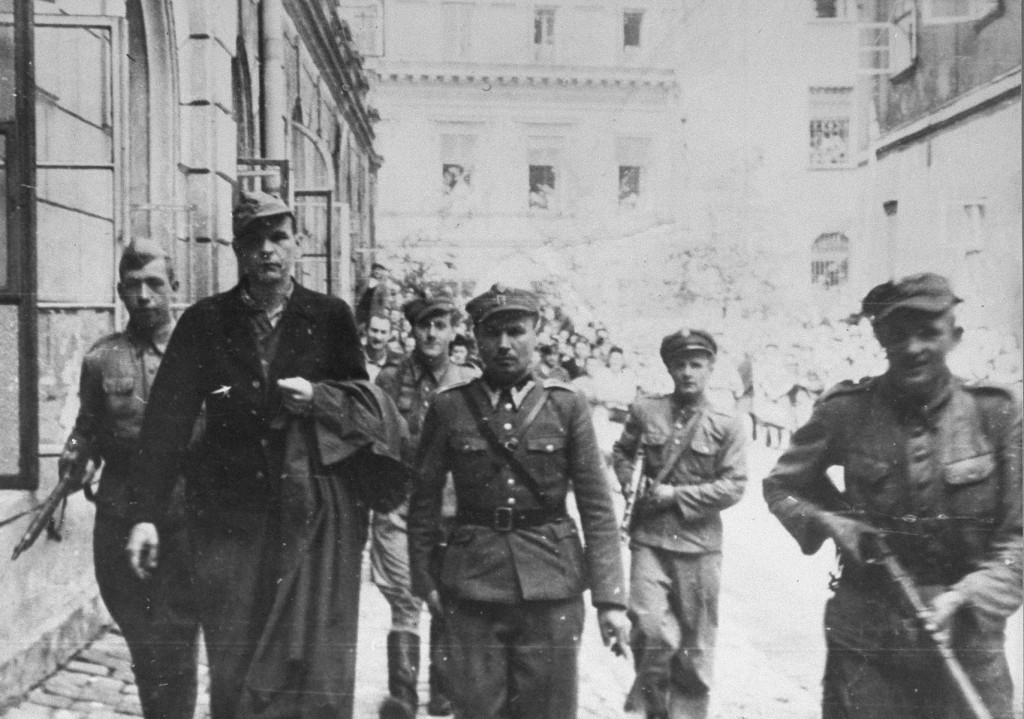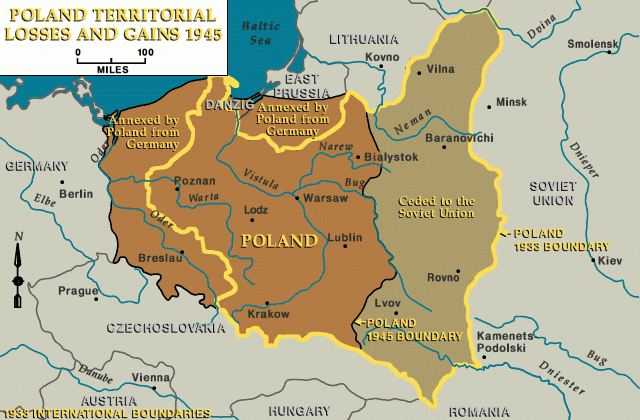
Poland in 1945

Continental Europe emerged from German domination in 1945 both shattered and transformed. One consequence of German defeat was the expansion of Soviet power and influence in eastern Europe. The Soviet victory led to a tremendous geographic shift in Polish territory and, ultimately, to the establishment of a communist dictatorship in Poland.
Virtually all of Poland in its prewar boundaries had been liberated by Soviet forces by the end of January 1945. After Germany's surrender, Soviet troops occupied most of eastern Europe, including Poland. As a consequence of decisions made by American President Franklin D. Roosevelt, British Prime Minister Winston S. Churchill, and Soviet Communist party chief Joseph Stalin at the Yalta Conference (held in the Soviet Crimea in February 1945), the Soviet Union retained the Polish territory that it had annexed after it partitioned Poland in 1939 under the provisions of the German-Soviet Pact.
Poland's eastern border was moved westward and, as a result, Poland lost more than 70,000 square miles of territory to the Soviet Union. Poland was compensated, however, with German territory from the provinces of Silesia, Pomerania, and the southern part of East Prussia; her western border (as determined at the July 1945 Potsdam conference) would run along the line of the Oder and Neisse Rivers. Thus, Poland received more than 40,000 square miles of territory from Germany, including Silesian coal mines and a Baltic Sea coastline. This territorial shift of Polish borders moved the country decisively westward, closer to the heart of Europe. Nevertheless, Poland emerged from World War II slightly reduced in size from its 1939 boundaries.

